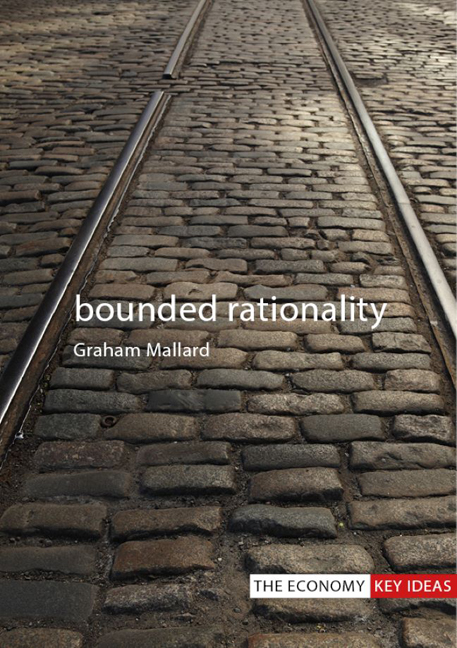5 - Concluding thoughts
Published online by Cambridge University Press: 20 December 2023
Summary
The studies included in this book have been selected because of the story that is revealed when they’re knitted together. The hope is that the previous chapters, particularly the third and fourth, demonstrate that incorporating bounded rationality into our economic models leads to three invaluable outcomes in comparison to traditional models based on complete rationality: (1) more accurate explanations of economic phenomena and behaviour; (2) more effective policy recommendations; and (3) wider and richer insights into the outcomes of our behaviour. These are the conclusions that this book has sought to reveal, the supporting findings for which are summarized in Table 5.1.
An interesting insight becomes immediately apparent by looking at Table 5.1. Although the sample of bounded rationality studies examined in this book is small in both absolute and proportional terms, it shows the merit of considering both optimizing and non-optimizing approaches when modelling bounded rationality. Studies that dispense with the optimization assumption and instead model us as seeking outcomes that are simply good enough are particularly adept at providing more accurate explanations of our observed behaviours: of explaining our behaviours that models of complete rationality are simply unable to do. That we tend to congregate around two specific points when playing a three-player Hotelling game; choose to deny charges (or to cooperate with our opponent) when playing a repeated version of the prisoner's dilemma game, and readily contribute to the provision of public goods are just three examples. Studies that maintain the optimization assumption but impose additional constraints on the decision-makers involved, on the other hand, are particularly adept at revealing wider and richer insights about economic situations. That it is better for us to devote our limited memory capacity to one choice amongst the many we face; that centrist candidates are unlikely to be successful in their bid for power if the electorate is polarized, and that businesses are likely to charge lower prices compared to their rivals when they know customers will consider their goods first are again just three examples.
- Type
- Chapter
- Information
- Bounded Rationality , pp. 89 - 104Publisher: Agenda PublishingPrint publication year: 2020

